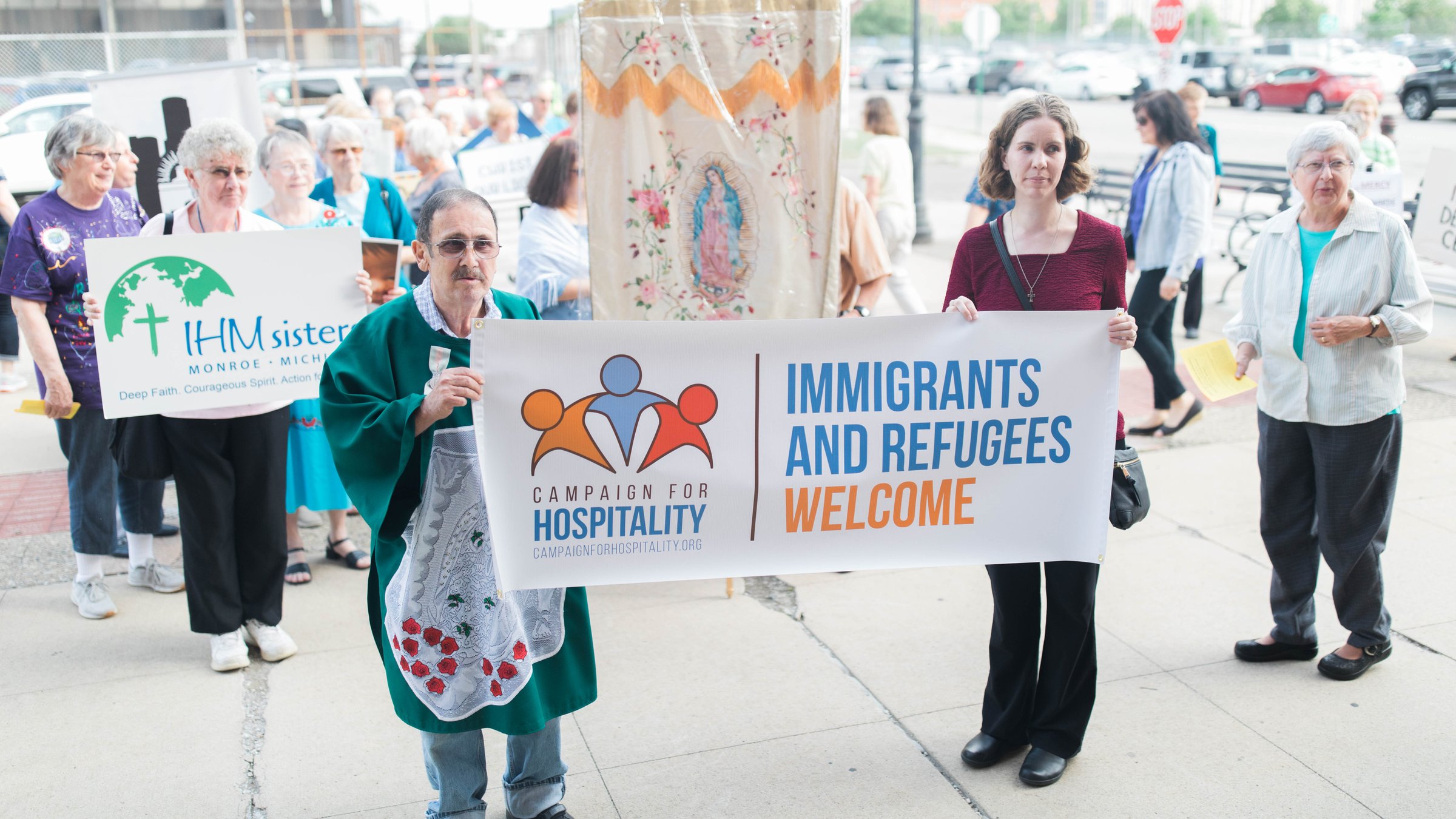The mission of the Michigan Catholic Conference (MCC) is to serve the "common good" through public policy advocacy at the Capitol in Lansing. But what do we mean by the common good?
One understanding from the Church's wisdom is that the common good is "the sum total of social conditions which allow people, either as groups or as individuals, to reach their fulfilment more fully and more easily."
And, Pope Francis taught that at its very essence, "underlying the principle of the common good is respect for the human person." So, the common good is not so much about what, but rather, who, with the who concerning the dignity of the individual human person.
We believe public policymaking — which should be directed toward advancing the common good — must be evaluated by how it advances or diminishes the life of the individual person.
It is from this perspective that the MCC presents its latest edition of the Blueprint for the Common Good, which lays out the principles and policies on which the MCC will advocate during the 2023-24 Michigan legislative session.
The Blueprint is intended for public policymakers, but is also made available to Catholic parishes and schools as well as to all the faithful to demonstrate the advocacy we undertake on behalf of the Catholic bishops in Michigan.
The policies within the advocacy categories share a single thread connecting them all: Upholding and maintaining the dignity of human life. While this is most often associated with the Church's teaching against abortion and assisted suicide — direct attacks on the sanctity of life itself — the principle of human dignity extends through all the Church's social teachings, and consequently, all through MCC's advocacy principles.
For instance, there is a direct connection between the plight of gun violence and its impact on human life, given the number of lives that continue to be unjustly ended by bullets. This is why the MCC supports gun safety measures such as enacting safe storage laws, which would require gunowners to lock up their guns or face penalties if those guns are accessed by children and used to hurt others.
Human dignity also concerns how people live by ensuring people — especially the poor — have basic necessities for themselves and their families. This includes shelter, which is why the MCC supports a coalition-backed proposal to invest $1.5 billion into building more homes that low and middle-income people can afford.
Our Catholic faith teaches that all people have dignity — whether they are unborn, terminally ill, or an undocumented person or a refugee from a war-torn country. This is why the MCC supports legislation to ensure undocumented immigrants and refugees can access driver's licenses to drive safely and legally to school, the doctor, family events and to acquire everyday necessities at the grocery store.
While lawmakers and their legislative priorities come and go, the MCC's promotion of the dignity of human life remains constant. The MCC will continue to be a strong advocate for life, speaking out against any expansion of abortion, protecting parental consent and informed consent policies, and promoting state funding for mothers and children in need.
Further, we will remain steadfast in defending religious liberty and religious organizations' freedom to serve others. In a state such as Michigan, where discriminatory restrictions exist toward nonpublic schools, advocacy is continually needed in support of educational choice and parental rights.
But advocacy for public policy does not rest with the MCC alone, as it takes all citizens in our democracy to influence the public policy process. The MCC offers an easy-to-use platform for Catholics to stay informed and engaged on legislative issues. To stay in the loop on what’s happening in Lansing that is of interest to the MCC, sign up today to join the Catholic Advocacy Network mailing list and partner with us in the noble task of promoting a social order that respects human life and dignity and serves the common good.
Paul A. Long is president and CEO of the Michigan Catholic Conference, the official public policy voice of the Catholic Church in this state. To read the full edition of the Blueprint of the Common Good, click or tap here to access the online version, or for the print edition, check to see if your local parish has them in stock, or call the MCC office about obtaining a free print copy.












